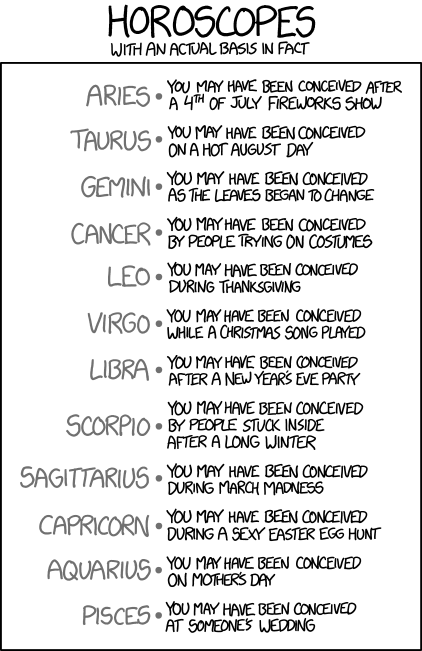
Robert George pens an open letter to the Holy Father, asking him to do what we have no doubt he is willing to do–but, as in many cases, what we would certainly appreciate his doing more firmly and publicly! I have emphasized what I take to be the key line in this worthy missive, below:
Here in the United States we are blessed with many bishops who join you in bearing witness to these profound and indispensable truths. Even in the face of social and economic pressure on them to yield or go silent, they boldly and joyously proclaim the Church’s teachings on marriage and chastity. None has been more fearless or ardent in upholding these beautiful and liberating teachings than Salvatore Cordileone, the Archbishop of San Francisco. Faithful Catholics in his archdiocese and throughout our country have been edified by his labors—particularly those addressed to ensuring that the Catholic schools under his care teach and model fidelity to Catholic doctrine in all matters of faith and morals. Unsurprisingly, however, these labors have drawn the antagonism of many who despise the Church’s moral teachings, especially those concerning marriage and sexual morality.
This morning, a group of people published an open letter to you in a San Francisco newspaper urging you to remove Archbishop Cordileone from his office. They identify themselves as Catholics and plead with you to send them a new archbishop that will be true to what they describe as “our values.” But their values, unlike the values proclaimed and upheld by Archbishop Cordileone, are not the values of the Catholic faith. Their complaint against the Archbishop finally comes down to his refusal to bow down before the values of contemporary secularist sexual morality and gender ideology. For this, however, he should be applauded and encouraged, not condemned, much less ousted.
Be assured, Holy Father, that the “prominent Catholics,” as the media describes them, who call on you to remove Archbishop Cordileone do not speak for the faithful Catholics of San Francisco. Already, a movement has emerged to support and encourage the Archbishop. It is a movement of grateful Catholics—not “prominent” people—but ordinary men and women, many of them immigrants or the children of immigrants from many lands. These men and women are grateful to have an archbishop who believes and teaches what the Church believes and teaches. They send their children to the diocesan schools because they desire for them an education imbued with a Christian spirit and shaped by the teachings of the Catholic faith. Their spirits have been lifted by Archbishop Cordileone’s tireless work to ensure that such an education is available to all who desire it.
With gratitude to God for your own witness and ministry, I humbly ask you to join those of us who are supporting and encouraging Archbishop Cordileone. It would be a wonderful thing for you quietly to let him know that he has your blessing, and that the insults and defamations he is experiencing as a result of his faithful apostolic work are a participation in the redemptive suffering of Jesus, who said: “anyone who would be my disciple must take up his cross and follow me.”
(source: A Letter to Pope Francis | Robert P. George | First Things)
There are many more supporters. Too many folks are confused, thinking that the service of God, or the service of the servants of God, is a matter of pandering to constituencies after the manner of politicians in a mass-market democracy. But, even setting aside the question of truth for a moment–always a dangerous thing to do, even for sake of argument–what does it make sense to expect from those who dedicate their lives to their belief that the Creator of the universe cares about humanity and has spoken?
Does it make sense to expect them to rewrite the Creator’s explanations to suit the preferences of creatures?

What would it say about their faith if they did?
But there are plenty of voices speaking the faith of the Church back to her, and in front of the world. And, Deo volente, they will someday be able to do so in a country where calumny and slander do not replace public justice.

And if not, well, we’ve been there before. Continue reading »
 From my Amazon.com author page:
From my Amazon.com author page:



 Hold on, what was that sentence again?
Hold on, what was that sentence again?






 I am sad to say I probably devoted too much of my life to demonstrating my acuity with this method, and happy to say I really did fight “out the other end” into what lies beyond words, the grace of my baptism propelling me through fidelity to the Word into discovering its coordinate Sacrament. And I am happy to say that deep familiarity with this way of reading and writing is often very useful in the intellectual climate of late modernity (however much I may find fault with them, no good Marxist, existentialist, or post-structuralist is wrong about everything; and in fact there are insights I cannot imagine gleaning without them). In fact, I cannot easily imagine how, without passing through the forest of deconstruction, I could have reached the gleaming city we never dreamed of on the plains where I grew up. So I am grateful for this wasting and wandering, for it led me here.
I am sad to say I probably devoted too much of my life to demonstrating my acuity with this method, and happy to say I really did fight “out the other end” into what lies beyond words, the grace of my baptism propelling me through fidelity to the Word into discovering its coordinate Sacrament. And I am happy to say that deep familiarity with this way of reading and writing is often very useful in the intellectual climate of late modernity (however much I may find fault with them, no good Marxist, existentialist, or post-structuralist is wrong about everything; and in fact there are insights I cannot imagine gleaning without them). In fact, I cannot easily imagine how, without passing through the forest of deconstruction, I could have reached the gleaming city we never dreamed of on the plains where I grew up. So I am grateful for this wasting and wandering, for it led me here.





